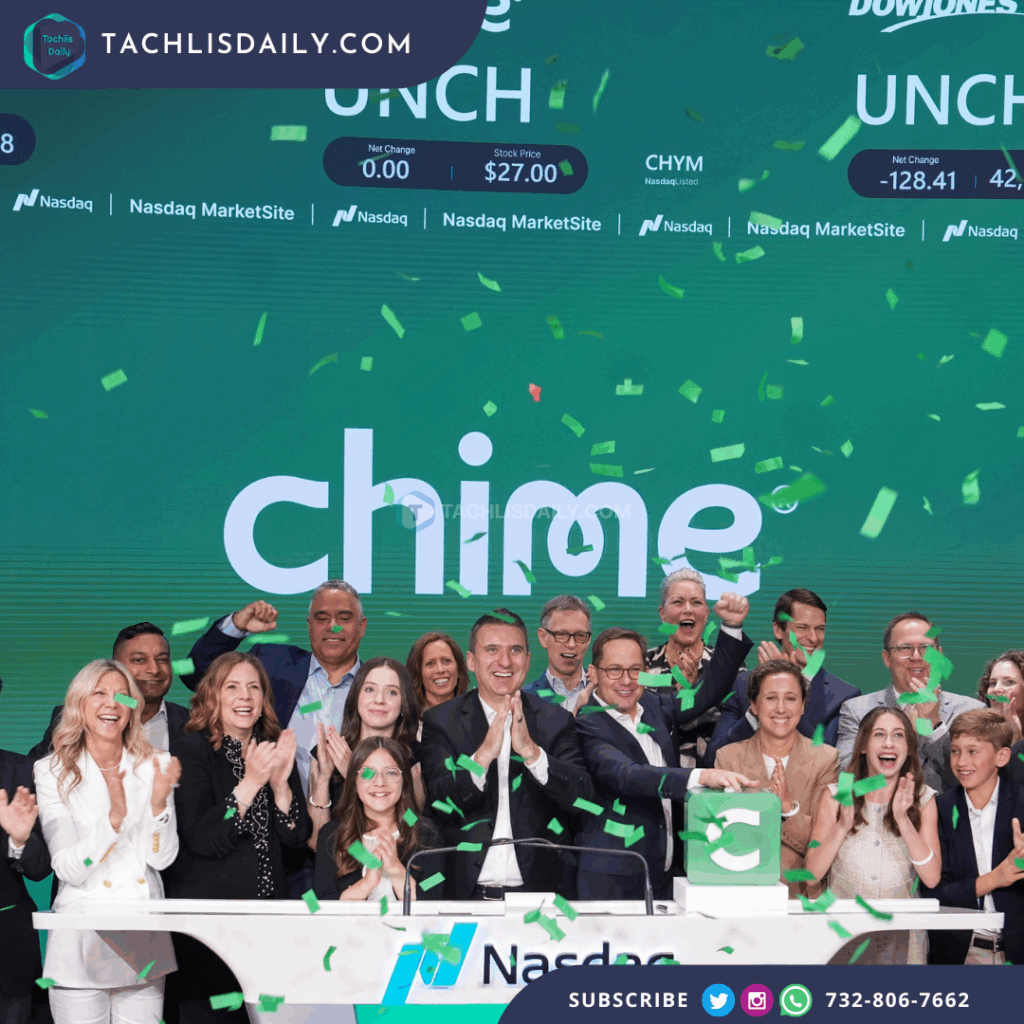Chime, the digital banking platform known for serving everyday American consumers, made a powerful debut on the Nasdaq Thursday under the ticker symbol CHYM, opening at $43 per share following an initial public offering priced at $27. The IPO raised approximately $700 million in fresh capital and placed the company’s valuation at $11.6 billion, signaling renewed investor interest in fintech after a prolonged IPO drought.
The public offering included additional share sales from existing investors totaling $165 million. Although Chime’s current valuation stands below the $25 billion peak reached during its 2021 private fundraising, the successful launch indicates a positive shift in sentiment within the fintech sector. With interest in tech listings on the rebound, Chime’s strong showing may serve as a bellwether for peers like Klarna, Gemini, and Bullish that are eyeing the public markets.
Chime’s latest financials show a quarterly revenue of $518.7 million, marking a 32% year-over-year growth. Net income slightly decreased to $12.9 million from $15.9 million in the same period last year. CEO Chris Britt credited the platform’s success to its focus on lower-income Americans, with the majority of users earning $100,000 or less annually. About two-thirds of Chime users rely on the service as their primary banking account.
“We help our members avoid fees, get access to short-term liquidity, build their credit and savings. That’s what really resonates with our customers,” Britt said. The company has reached $25 million in adjusted profitability and improved its profit margins by 40 percentage points over two years.
Chime’s rapid growth is reflected in its 8.6 million monthly active users, with usage statistics showing over 55 transactions per month per customer and daily app interactions four to five times. Active membership increased 23% year-over-year, driven by high retention—more than 90% of users who enable direct deposit stay on the platform.
The company has heavily invested in growth, spending $1.4 billion on marketing from 2022 to 2024. Britt emphasized that Chime’s revenue is primarily payments-driven, with 72% coming from interchange fees, a model that diverges sharply from traditional banks that depend on overdraft and minimum balance fees.
Institutional backers such as DST Global, Crosslink Capital, and Iconiq have stood by Chime through multiple funding rounds. Iconiq, which first invested in 2019 when Chime’s valuation was $1.5 billion, praised the company’s commitment to its core customer base and its user-focused financial model.
As one of the most closely watched IPOs in fintech this year, Chime’s market performance is likely to influence upcoming public offerings. Industry experts are closely monitoring whether its momentum continues, as the outcome could either encourage or delay other tech companies considering public listings in the months ahead.












